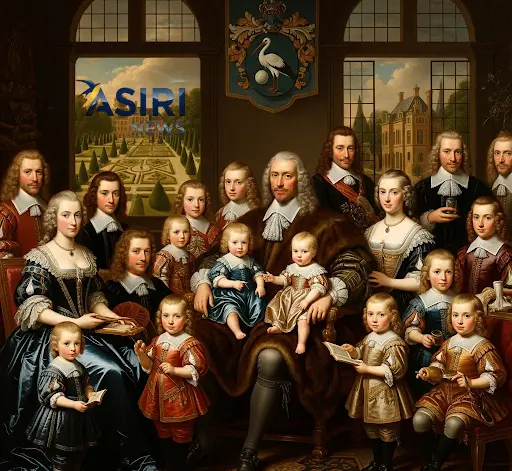In a curious shift among the global elite, a new kind of status symbol is emerging, replacing the traditional markers of luxury like private jets and designer handbags. Among the ultra-wealthy, having a large family has become a powerful sign of affluence, one that telegraphs not just money, but a wealth of resources and an almost complete insulation from the economic pressures of modern life. This trend, while seemingly innocuous, has ignited a debate about its cultural and socioeconomic implications, particularly in an era of historically low birth rates.

The trend is most visible in regions where fertility rates have fallen to historic lows, making large families an anomaly. For instance, according to recent UN and national data, the total fertility rate sits at approximately 1.6 births per woman in the U.S. and 1.56 in the UK, with some parts of Asia, such as South Korea, dropping to a startling rate of under 1. In this context, the expansive households of public figures like Elon Musk and the Baldwin family are becoming a new form of conspicuous consumption. These large families are supported by an army of nannies, tutors, and other staff, signifying that the parents are not just wealthy enough to have many children but also to outsource the labor of child-rearing.
The shift is a stark contrast to historical patterns, where poverty was often linked to large family size due to a lack of access to contraception and education. In today’s developed world, the costs of raising a child have skyrocketed, from childcare and private education to housing and healthcare. For the average family, a large brood is often a financial strain that can lead to lower wealth accumulation over a lifetime. However, for the ultra-rich, these costs are trivial. They can afford to invest in their children’s well-being without financial constraint, turning what is a burden for others into a badge of privilege.
Brands have been quick to capitalize on this new “aspiration.” High-end baby product companies are now creating sophisticated ad campaigns that feature idealized family life, complete with multiple children in designer clothes and picture-perfect settings. From luxury strollers to organic baby food, the market for high-end child-rearing has never been more vibrant.
This glamorization of large families, however, is not without its critics. Many sociologists and commentators argue that it trivializes the very real challenges of parenthood for the vast majority of people. Furthermore, it reinforces regressive gender norms, where a woman’s value is placed in her ability to produce a large family, and it perpetuates the idea that raising children is a private, rather than a public, responsibility—a responsibility that is easily managed as long as one has enough money to hire help.



